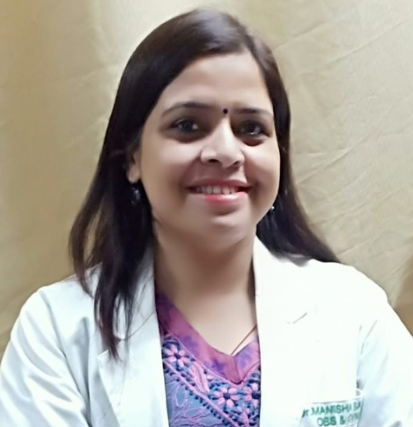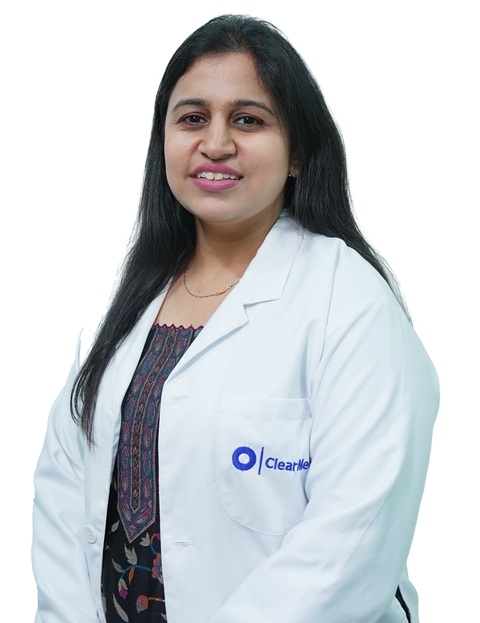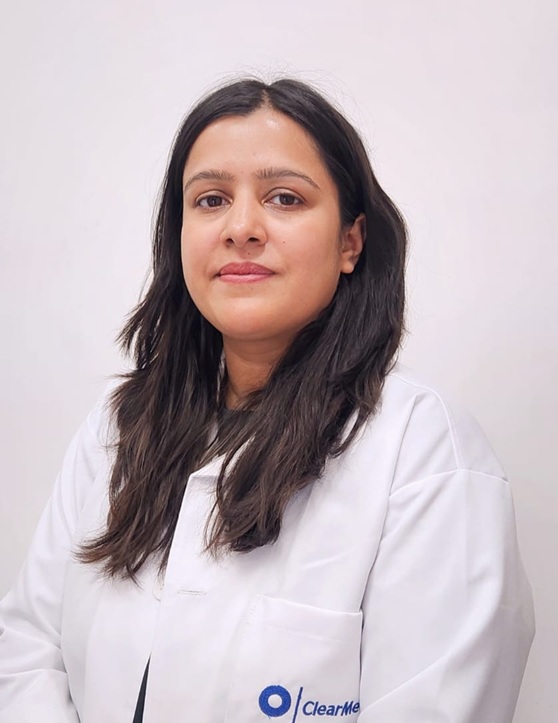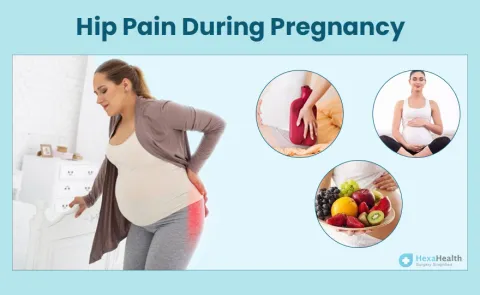Pregnant at 40 - Symptoms, Benefits, Risks and What to Expect

Quick Summary
- Pregnancy after 40 is common and offers several benefits to the parents like financial and emotional stability.
- Women may find it more difficult to get pregnant as fertility declines with age.
- There are certain risks related to pregnancy at age 40, such as increased risk of miscarriage, gestational diabetes, and high blood pressure.
Table of Contents
- Pregnancy Symptoms at 40
- Relationship of Age with Pregnancy
- Benefits of Getting Pregnant at 40
- Risks of Getting Pregnant at 40
- Common Complications in Pregnant Women Over 40
- How to Get Pregnant at 40?
- Tips to Have a Healthy Pregnancy After 40
- What to Expect During Labour and Delivery?
- When to Call a Doctor?
- Takeaway
- Frequently Asked Questions
- References
Are you pregnant at 40? You are not alone! While women are always told to have children before they turn 35, the data suggests otherwise. A study states that as a woman ages, her chance of natural pregnancy drops from around 25% at age 25 to less than 5% at age 40.
There are multiple reasons why women today prefer pregnancy after 40. While it offers several benefits to the parents like financial and emotional stability, there are also certain risks related to pregnancy at age 40. Women may find it more difficult to get pregnant as fertility declines with age.
If you are considering having a baby after 40, it is best to understand all the benefits, risks, and other facts beforehand. Read the following blog to learn the possible benefits and health risks of being 40 and pregnant. Furthermore, it discusses what you can expect during pregnancy and delivery.
Pregnancy Symptoms at 40
Pregnancy symptoms at 40 are the same as those experienced by a younger woman, at large. However, the symptoms may be more severe than those experienced at a younger age.
You may have more bodily pains and discomforts in your 40s, making symptoms more severe compared to a woman in her 20s. Some of these symptoms include:
- Morning sickness, especially in the first trimester
- Vomiting and nausea
- Bloating
- Constipation
- Tiredness and fatigue
- Unusual cravings
- Pain in the back and pelvic region
- Swollen breasts
- Frequent urination
- Mood swings


Relationship of Age with Pregnancy
About one-third of couples after the age of 35 experience fertility issues. Factors that increase the risk of low fertility with age include:
- Fewer number of eggs left
- Ovaries are unable to release eggs properly
- Unhealthy eggs
- Higher chances of health conditions that hamper fertility
- Increased risk of miscarriage
Possibility of Pregnancy at 40
Though it is possible to get pregnant at 40, the fertility rate decreases as women age, making it more challenging to conceive. This is because the quantity and quality of a woman's eggs decline as she gets older.
Women over the age of 40 are considered to be of advanced maternal age and are at higher risk for pregnancy complications such as gestational diabetes, pre-eclampsia, and chromosomal abnormalities in the foetus. However, with advances in assisted reproductive technologies such as in vitro fertilisation (IVF), many women are still able to conceive and have healthy pregnancies even in their 40s.
If you are trying to conceive at this age, it's important to discuss your options and any potential risks with your doctor. Keep reading to know this in detail.
Benefits of Getting Pregnant at 40
While there are more health risks of pregnancy after 40, there are also some benefits that outweigh those of having children in the 20s and 30s. Some of these benefits include:
- Having a more established career can allow you to dedicate more time to raising a child
- Having a better financial status
- Wanting to have a baby with a partner you met later in life
- Finding that you are ready to handle the responsibility of a child
Besides these benefits, some studies suggest that having a child later in life can offer other benefits like a longer life span, reduced cognitive decline, and better educational results for the child.
Risks of Getting Pregnant at 40
The peak reproductive years span from your late teens to your late 20s. Fertility begins to go down at age 30. People born with ovaries have a limited supply of eggs at birth, and that supply diminishes rapidly after 35. At age 45, fertility is so low that it becomes difficult for most women to get pregnant naturally. While it is possible to safely have a baby after 40, pregnancy at 40 or above is considered high risk.
The woman's age determines how well the placenta can develop during pregnancy. Improper development of the placenta can cause risks, such as:
- A baby with a low birth weight
- Placenta praevia (the placenta partially or completely covers the opening of the uterus)
- Placental abruption (the placenta partially or completely separates from the uterus's inner wall before delivery)
- Preeclampsia (characterised by high blood pressure, protein in the urine, and swelling in the legs)
- Risk of Twins or Multiples at Age 40: Being 40 or above does not increase the risk of giving birth to twins or multiples. However, women who get fertility treatment like drugs or IVF for conception may have a higher chance of multiple births.
Why? Because these treatments increase ovulation. Having twins can also increase the risk of your babies being premature. - Risk of miscarriage and ectopic pregnancy increases as women get older; one in two women pregnant at 40 experience a miscarriage.
Common Complications in Pregnant Women Over 40
Besides decreased chances of getting pregnant at age 44 and above, there are other complications you may experience when you get pregnant in your 40s. The doctor will monitor you and your baby closely to look for the following complications:
- Gestational diabetes: This is when diabetes is diagnosed for the first time during pregnancy. The condition causes high blood sugar, affecting your pregnancy and the baby's health.
- Stillbirth: Stillbirth is the foetus's death after 20 weeks of pregnancy. If you go past your due date in pregnancy after 40, the risk of stillbirth will increase.
It is twice as likely for pregnant women in their 40s than those under 30. As a result, doctors usually offer labour induction to women over 40 around their due date. - Chromosomal abnormalities: Pregnant mothers at 40 are more likely to deliver babies with chromosomal abnormalities like Down's syndrome and Patau's syndrome.
The risk of a child born with Down syndrome goes up as you age. At age 20, 1 in 1480 children is born with the condition. By age 40, the risk increases to 1 in 85; at age 45, the risk goes up to 1 in 35. - Need for caesarean: If you are 40 and pregnant, you are more likely to have a caesarean delivery than a normal delivery. This is because the uterine muscles become less effective as women age, particularly in first-time mothers.
How to Get Pregnant at 40?
Several people have this question: Can a woman get pregnant at 40? While it may take some time to get pregnant at any age, women over 40 may find it even more difficult to conceive.
If you do not get pregnant after trying naturally for six months, you may want to visit a fertility specialist. A fertility doctor is a reproductive endocrinologist who runs tests, such as an ultrasound or blood test, to check factors that might affect your ability to get pregnant.
The fertility specialist may suggest the following options to help you get pregnant at 40:
- Fertility Drugs: Fertility drugs like Follicle Stimulating Hormone (FSH) drugs and Clomiphene can help with hormones to assist in successful ovulation.
- Intrauterine Insemination (IUI): Also called artificial insemination, this process involves injecting sperm directly into the uterus. The procedure is especially helpful when male infertility is suspected.
- Assisted Reproductive Technology (ART): The procedure involves removing the eggs and fertilising them in a lab. After fertilisation, the eggs are inserted back into the uterus.
The most common type of ART procedure is In Vitro Fertilisation (IVF). It is used for surrogates and women who face ovulation issues.
Tips to Have a Healthy Pregnancy After 40
If you are pregnant at 40, the best thing you can do is to be as healthy as possible. Some tips that can help you have a normal and healthy pregnancy at age 40 and above include:
- Regularly visit your doctor and follow all instructions and suggestions.
- Do not miss prenatal tests or screenings throughout the pregnancy.
- Eat a healthy, balanced diet to ensure nutrition for you and your baby.
- Drink sufficient water to keep yourself hydrated.
- Lose weight before pregnancy if you are overweight or obese.
- Quit smoking, drinking alcohol, and using illegal drugs during pregnancy.
- Do some light exercises for at least half an hour to stay active.
- Limit caffeine intake before and during pregnancy.
- Report any symptoms of preeclampsia or other complications.
- Get all pregnancy vaccines recommended by your doctor.
What to Expect During Labour and Delivery?
Being pregnant at 40 does not necessarily affect delivery. The birth outcomes of women over 40 do not differ from those of younger ones as long as pregnant women:
- Get quality prenatal care
- Attends regular prenatal appointments
- Maintains a healthy lifestyle
- Does not suffer from chronic medical conditions
However, vaginal delivery may become less likely for pregnancy after 40. Why? Because fertility treatments can increase the risk of premature birth.
Furthermore, pregnant women over 40 also have an increased risk of developing preeclampsia, requiring a caesarean delivery to save both mother and the baby. Delivering a baby vaginally at this age can increase the risk of intrauterine foetal demise.
When to Call a Doctor?
If you are pregnant at 40, you must carefully look for any signs of complications. Call your healthcare provider if you experience:
- Fever or chills
- Persistent nausea and vomiting
- Dizziness
- Burning sensation while urination
- Cramps in the lower abdomen
- Vaginal bleeding
- A sudden decline in the baby's movements and kicks
- Swelling in fingers, hands, and face
- Severe headache
Takeaway
With women being independent and building strong careers for themselves, pregnancy after 40 in India has become much more common than it used to be. Despite the risks of getting pregnant at 40, you can conceive a healthy child with proper care and regular screenings.
Some parents deliberately choose to have their first child in their 40s due to the financial and emotional benefits it offers. If you find it difficult to get pregnant naturally in your 40s, certain fertility treatments, like IUI and IVF, can help you conceive a baby.
It is important to discuss the risk factors, complications, and delivery options with your doctor before starting a family in the later stage of your life. While quality healthcare is important for pregnancy at any age, it becomes even more important with pregnancy after 40 as it is considered high risk.
With proper healthcare and a healthy lifestyle, mothers in their 40s can have safe pregnancies. HexaHealth has a network of the most qualified and experienced doctors who prioritise the health of the mother and baby and help parents deliver a healthy child. So what are you waiting for? Make an appointment with a HexaHealth expert TODAY!
Frequently Asked Questions
Can women get pregnant at 40?
What are the chances of getting pregnant at age 44?
How to have a healthy pregnancy after 40?
Despite the risks of pregnancy after 40, some tips can help you have a healthy pregnancy, which includes:
- Regularly visiting the doctor and following all instructions
- Not missing prenatal tests or screening throughout the pregnancy
- Eating a healthy, balanced diet
- Keeping yourself hydrated
- Achieving an ideal weight before pregnancy
- Quitting smoking, drinking, and using illegal drugs during pregnancy
- Doing some light exercises to stay active
- Limiting caffeine intake before and during pregnancy
- Reporting any symptoms of preeclampsia or other complications
- Getting all pregnancy vaccines recommended by the doctor
Can a woman be pregnant at 45?
What are the three benefits of having a baby after 40?
Some benefits of having a baby after 40 can even outweigh the benefits of pregnancy in the 20s and 30s. These benefits include:
- Having an established career allows parents to dedicate more time to their baby.
- Parents have a better financial status.
- They are more prepared to handle the responsibility of a child.
Is the pregnancy in your 40s high risk?
Due to advances in technology surrounding pregnancy and delivery, it is possible to have a baby after 40. However, any pregnancy after 40 is considered high risk.
Mothers who are 40 and pregnant have a high risk of developing conditions such as preeclampsia and gestational diabetes. Additionally, it increases the risk of the baby being born with birth defects, such as Down's syndrome. A pregnancy in the 40s can also increase the chances of miscarriages and stillbirths.
How can I prepare for pregnancy after 40?
Pregnancy after 40 has risks and complications for the mother and the baby. Therefore, it is important to prepare yourself before getting pregnant to ensure a successful pregnancy by:
- Consulting a doctor and discussing the possible risks and benefits
- Going over other options for childbirth
- Managing existing health problems, such as hypothyroidism or STIs, before conceiving
- Eating a healthy diet
- Achieving a healthy weight
- Avoiding harmful substances like tobacco, alcohol, and recreational drugs
- Exercising to stay active
What are pregnancy at age 43 symptoms?
How many months does it take a 40-year-old to get pregnant?
How can I prevent a miscarriage after 40?
While you may not be able to prevent a miscarriage in most cases, you can reduce its risk by having a healthy pregnancy. These tips include:
- Taking 400 micrograms of folic acid daily (it reduces the risk of birth defects)
- Following a healthy lifestyle
- Maintaining a healthy weight
- Managing chronic conditions, such as diabetes and high blood pressure
- Taking precautions against infections like pneumonia and flu
How hard is it to get pregnant naturally at 45?
What is the oldest age a woman can get pregnant naturally?
There is no specific upper age limit for getting pregnant naturally. However, fertility starts to decline as you age.
Women's peak reproductive years are between the late teens to the late 20s. By age 30, fertility in women starts to decline. The decline becomes more rapid between the mid-30s and early 40s. By 45 years, fertility declines so much that getting pregnant naturally becomes unlikely for most women.
Is it too old to have a baby at 40?
What age is it too late to have a baby?
What age is best to have a baby?
What is the best reproductive age for a woman?
What to expect when you're pregnant at 40?
Last Updated on: 28 August 2024
Reviewer

Dr. Arti Sharma
MBBS, DNB Obstetrics and Gynaecology, Diploma In Cosmetic Gynaecology
9 Years Experience
Dr Arti Sharma is a well-known Obstetrician and Cosmetic Gynaecologist currently associated with Aesthetica Veda in Bengaluru. She has 9 years of experience in Obstetrics and Cosmetic Gynaecology and worked as an expert Obstetrician...View More
Author

Charu Shrivastava
BSc. Biotechnology I MDU and MSc in Medical Biochemistry (HIMSR, Jamia Hamdard)
3 Years Experience
Skilled in brand marketing and SEO-driven medical content that educates and engages patients, healthcare professionals, and the general public. With medical writing and proofreading expertise, she ensures accuracy,...View More
Expert Doctors (10)
NABH Accredited Hospitals (5)
Latest Health Articles


























 Open In App
Open In App